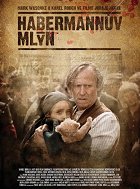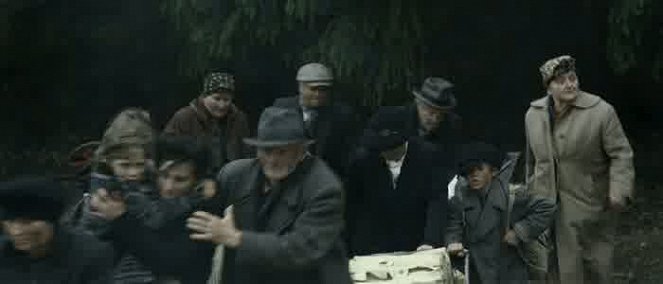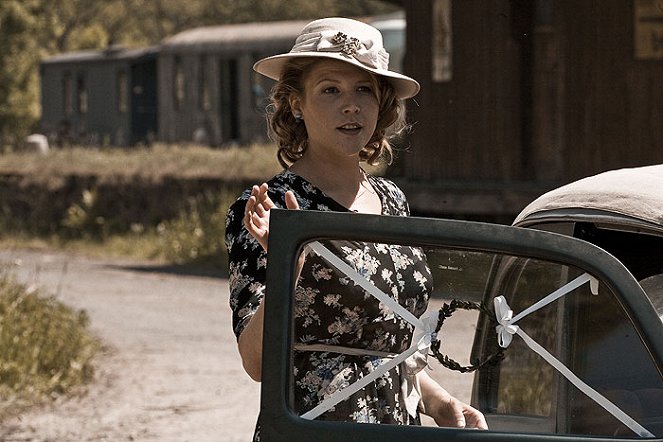Rendező:
Juraj HerzOperatőr:
Alexander ŠurkalaZeneszerző:
Elia CmiralSzereplők:
Mark Waschke, Karel Roden, Ben Becker, Hannah Herzsprung, Radek Holub, Wilson Gonzalez Ochsenknecht, Zuzana Kronerová, Jan Hrušínský, Franziska Weisz (több)Tartalmak(1)
A Szudéta-vidékről származó Habermann gazdag és humánus ember, egy malom tulajdonosa. August Habermann beleszeret a gyönyörű Janába és feleségül veszi. Habermann kiváló vállalkozó, s Bludov falujában neki van egyedül malma. Sok embernek tud így munkát és kenyeret adni. Habermann német, Jana cseh, s itt, a határ menti faluban élnek nagyon boldogan. Hamarosan gyermekük születik, s a Melissa nevet kapja örökül. Habermann családjának dolgos és felhőtlen élete egyik napról a másikra megváltozik, amikor 1938-ban, Európában egyre jobban fokozódik a második világháborús helyzet. Hans, Jana öccse szimpatizál a fekete ingesekkel. Habermann legjobb barátja és munkatársa Karel az egyedüli, aki ebben a tragikus háborúban próbálja védeni Habermannt és családját, egészen a végzetes végkifejletig. Juraj Herz, kíváló cseh rendező nem egy dokumentumfilmet akart rendezni, hanem egy hiteles játékfilmet, amely megtörtént történelmi eseményeken alapul. (MTVA)
(több)Videók (1)
Recenziók (8)
Az első harmadban megismerve a szereplőket és a kor hangulatát, kiváló drámának ígérkezik, nyugat-európai paraméterekkel és Oscar-ambíciókkal. Ez a lehetőség azonban a film folyamán valahogy eltompul és elhalványul. A lista készítése lett volna a film kulcsjelenete, amely a maradék játékidőt egy felejthetetlen drámai pokolba emelte volna. Félig-meddig sikerült. Ennek ellenére elfogadható - a színészek, a jelmezek, a díszlet, az operatőri munka, minden elsőrangú. Sokáig gondolkoztam a 4 csillagról.
()
Certainly the most significant and quite possibly one of Herz's most successful works since his creative heyday (ending with Morgiana). But at the same time, the film, which, compared to last year's Protector, looks terribly old-fashioned with its radical propensity for pathos and television with its conservative processing. It is good, however, that it opens up the painful and still sensitive subject of German expulsion and crimes against often innocent members of another nationality. What is worse is that in its vision of the world, the film remains at times awkward, clenched and pathetic, albeit with an inverted sign (the characters of Czech pigs are basically equivalent to typical film SS soldiers). Habermann's Mill is very good wherever it focuses on the civilian theme (Habermann as a man who wants to stand "outside" ideologies, which is his fatal mistake) and does not embark on the upright waves of tragedy. When it comes to it (Habermann's wife's interview with the Sturmbahnführer, the execution of Czechs, the final scenes of lynching), the film has the old familiar piece of unnaturalness and bony script equations. The dubious choice of language can also be blamed – why on earth are two Germans talking to each other in Czech post-synchronization and with a terrible attempt at a hard German accent? There are a number of unpleasant excesses, but on the other hand Herz can always compensate them with more successful moments, when I felt that this film had something to say, but he never finishes it. His greatest advantage remains quality craftsmanship, sensitive direction, stylish music and, above all, the charismatic Březina performed by Karel Roden, a character who makes Habermann's Mill surprisingly decent here and there. [55.5% :o)]
()
A very good film, not only by Czech standards. Great actors, Herz's direction supported by excellent cinematography and Cmiral's haunting music, and an interesting story, which is unfortunately quite easy to predict. Habermann's Mill could easily have been a bit longer to give more space to some of the characters (yes, I mean for example Kaiser and Stránský).
()
To tell you the truth, Habermann's Mill was a very pleasant surprise. The craftsmanship is very professional, Roden is charismatic and the emotions are fairly strong. Unfortunately, it has a couple of the typical problems of modern Czech cinema, like some toe-curling dialogues and the terrible post-synchronisation… but the overall impression left by Herz’s film is very positive.
()
In the last ten years, World War II has been reflected in the story of the RAF airmen in Dark Blue World, in the fate of the Hanula of Zelary, it was there in Bonds of Blood and was featured in I Served the King of England, Tobruk, and Protector. Now, Herz's Habermann's Mill deals specifically with the question of the 1945 expulsion of the Germans, toward which the narrative arc from 1937 onwards follows a direct line of the changing behavior of a multi-ethnic community in extreme times. Herz does an amazing job in every possible respect and presents a film that has been a necessity for Czech cinema for many years. The preponderance of German actors is one of the many strengths on which the basic impact of the horror of the events at Habermann's Mill was built. In particular, Mark Waschke in the lead role embodies the compact, complex character excellently, lending a hand across the decades to, for example, Schlapcke's Boris Rösner of the Albrechtice smelters. The same goes for the riveting performance by Hannah Herzsprung and several others. With the Czechs, it is somewhat difficult to avoid the established pigeonholes, especially with Roden and Hrušínský; however, there was a certain breakthrough when it came to Kaiser and Dulava. It is definitely worth mentioning that Veronika Gajerová, whose performance ideally meets the requirements of the template given to her, as she was given a film role instead of television for the first time since 1989. It would probably now be possible to consider whether Herz is, after all, subconsciously presenting a defense of the German side against the Czech side, but in this case, such an idea would be blasphemous. The story flows and adapts to the time, which is cut off in fairly large chunks of time to allow for the point to be focused on. And at the same time, it is possible to find time for visual references to Coach to Vienna... Looking at it from multiple angles, the only real downside to the film is that the marketing focused exclusively on Karel Roden, who is only a prominent supporting player in the plot, thus stealing space from the main stars of the drama.
()



Hirdetés